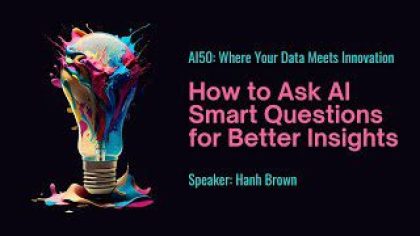Table of Contents
ToggleEvery age ushers in new tools, providing the opportunity to explore untapped potential and reimagine possibilities. The emergence of GPT-4, a state-of-the-art language model, poses a transformative prospect not just for tech enthusiasts, but for various industries. One sector on the brink of an AI revolution is senior living marketing—a niche yet vital area where new tech promises to create waves.
Imagine a machine that can understand, generate, and converse in human language with uncanny accuracy—that’s GPT-4 in a nutshell. It’s a game-changing language model developed by OpenAI, with the proficiency to generate human-like text by predicting subsequent words based on previous ones. Armed with the ability to learn and adapt, GPT-4 does more than just spew out generic content—it tailors responses in a contextual manner, making interactions smoother and more relatable.
Over the years, the model has evolved from its predecessor, GPT-3, enhancing its capabilities and capacity. GPT-4 isn’t just ‘another AI’; it’s a significant stride in the AI world. With a broader dataset and more refined algorithms, it’s a powerhouse of potential, waiting to be harnessed.
AI’s presence in marketing isn’t a novelty anymore; it’s the new normal. From predictive analytics to personalized recommendations, AI has been shaping marketing landscapes. But when it comes to senior living marketing, the concept is still nascent, teetering on the edge of mainstream acceptance.
By intertwining the power of GPT-4 with senior living marketing, we can nurture a new breed of marketing—one that’s more intuitive, personalized, and successful. The time for exploration and transformation is here, and GPT-4 seems to be the key that can unlock the door to unprecedented success in senior living marketing.
Harnessing the Power of GPT-4 in Your Marketing Strategy
The prospect of AI-powered marketing might seem overwhelming, but the key to leveraging GPT-4 lies in understanding its capabilities and applying them effectively. It’s not about replacing human effort, but about enhancing it. As we delve deeper into the world of GPT-4, let’s uncover how it can elevate content creation and revolutionize customer service in senior living marketing.

Elevating Content Creation with GPT-4
Marketing content has a crucial role—it tells a story, conveys a message, and incites action. But crafting compelling content is not an easy task. In senior living marketing, it’s about conveying the right message in the right tone, hitting a chord with the target audience—seniors and their families.
GPT-4, with its advanced language processing capabilities, can be a game-changer. It can generate human-like text that resonates with the audience, all while maintaining context and relevance. For instance, GPT-4 can be utilized to craft engaging newsletters or blog posts detailing the unique aspects of a senior living community. Or, it could generate personalized emails that speak directly to potential residents, addressing their concerns or interests.
The AI’s ability to learn and adapt from feedback also allows for continual improvement in the quality and relevance of the content. GPT-4 isn’t about mass-producing generic content—it’s about creating tailored, meaningful narratives that capture the essence of your senior living community and appeal to your audience.
Revolutionizing Customer Service through GPT-4
Customer service is a critical aspect of senior living marketing. It’s not just about solving issues—it’s about building trust, establishing relationships, and ensuring satisfaction. However, maintaining swift and efficient customer service can be a challenge.
GPT-4 has the potential to streamline customer service, significantly reducing response times and enhancing customer satisfaction. As a virtual assistant, it can handle a multitude of queries in real-time, providing instant, accurate, and contextually appropriate responses. For example, it could help potential residents navigate the range of services, providing personalized information based on their unique needs. It can even facilitate the booking process, guide tours, or handle feedback.
Moreover, the AI’s ability to learn from interactions means it can continually improve its responses, making them more accurate and helpful. Thus, GPT-4 can offer a customer service experience that’s not just swift and efficient, but also personalized and intuitive, transforming the way senior living communities interact with their audience.
Implementing GPT-4 for Marketing Success in the Senior Living Sector
Having dissected the potential of GPT-4 in senior living marketing, the journey forward entails its effective implementation. With the correct integration and continual training, GPT-4 can propel marketing endeavors to new heights. So, let’s navigate the process of integrating GPT-4 with existing marketing platforms and explore how to train it to meet specific marketing objectives.

Integrating GPT-4 with Existing Marketing Platforms
The power of GPT-4 can only be harnessed when it’s effectively integrated with existing marketing platforms. The integration involves technical steps, but with the right guidance, it can be smooth sailing.
Firstly, access to GPT-4 requires an API key from OpenAI, the creators of GPT-4. Once obtained, the API key can be used to make calls to the GPT-4 engine.
Secondly, it’s about integrating the GPT-4 API with your marketing platform, be it a Customer Relationship Management system (CRM), Content Management System (CMS), or email marketing software. This requires a bit of coding, but many platforms offer guides to help with API integration.
Lastly, it’s crucial to set up GPT-4 for your specific use-cases, like content creation or customer service. This involves configuring the system to handle specific tasks, like drafting blog posts or handling customer queries. Remember, the integration process might require professional assistance, particularly if customizations are needed. But once completed, you’ve successfully set the stage for an AI-powered marketing revolution.
Training GPT-4 for Customized Marketing Needs
Training GPT-4 is an iterative process, driven by specific marketing objectives. It involves feeding the model relevant data, enabling it to understand your brand, target audience, and specific requirements.
Training could involve providing the AI with sample content or inputs to guide its output. For instance, if GPT-4 is being used for content creation, it could be trained using existing blog posts, newsletters, or emails. Further, GPT-4’s responses can be fine-tuned based on its performance. Feedback loops can be implemented, where the AI learns from the success or shortcomings of its outputs. This ensures the model evolves over time, constantly enhancing its understanding and relevance.
Training GPT-4 is a commitment to continual learning, an acknowledgment that the AI will grow alongside your marketing efforts. The more GPT-4 is trained and updated, the better it becomes at meeting your marketing needs. The integration and training of GPT-4 might seem like an uphill climb, but the peak offers a view worth striving for—a vista of marketing success in the senior living sector.
The Potential Impact of GPT-4 on Senior Living Marketing
The advent of GPT-4 heralds a new era for senior living marketing—an era of personalization, enhanced engagement, and improved conversion rates. As we delve deeper into the potential impact of GPT-4, we uncover a promising horizon where AI-powered marketing is the norm, not the exception.
Enhancing Personalization in Marketing with GPT-4
Personalization is more than just a marketing buzzword—it’s a proven strategy to drive engagement and build stronger relationships with customers. In the context of senior living marketing, personalization can take the form of individualized content, tailored responses, and personalized experiences, making each potential resident feel valued and understood.
With GPT-4, personalization is not just feasible but incredibly efficient. This advanced AI model can analyze customer data and preferences, crafting content that resonates with each individual’s needs and interests. For instance, GPT-4 could generate a personalized email that discusses facilities or activities relevant to a specific resident’s hobbies or health requirements.
The benefits of such personalization are significant. It enhances the relevance of the marketing content, improving customer engagement and fostering a stronger connection with the audience. Consequently, it boosts the probability of conversion, leading to successful resident acquisition for senior living communities.
Boosting Engagement and Conversion Rates Using GPT-4
Engagement and conversion rates are vital metrics in marketing. A highly engaged audience is more likely to convert, leading to greater sales and overall success.
GPT-4 has the potential to significantly boost these key metrics. With its ability to generate compelling, contextually relevant content, it can draw in the audience, keeping them engaged with the marketing message. This could range from engaging blog posts about community life to interactive chatbot conversations that provide real-time assistance.
Moreover, with its potential to provide personalized experiences, GPT-4 enhances the relevance of the marketing efforts for each individual, improving the chances of conversion. A potential resident, engaged and satisfied with the personalized interaction, is more likely to consider the senior living community as their new home.
Thus, GPT-4 isn’t just an AI model—it’s a tool for enhanced engagement, improved conversion rates, and ultimately, successful marketing in the senior living sector. Its potential impact is far-reaching, promising a future where AI-powered marketing leads the way to success.
Navigating the Challenges and Ethical Considerations in AI-Powered Marketing
While the prospects of GPT-4 in senior living marketing are exciting, this new frontier also brings challenges and ethical considerations. As we navigate the AI revolution, addressing issues around data privacy, security, and ethical implications becomes paramount. In the march towards AI-powered marketing, prudence and responsibility should guide our steps.

Data Privacy and Security in GPT-4 Applications
In an era where data breaches are frequent news, ensuring data privacy and security in AI applications is crucial. GPT-4, like other AI models, operates on vast amounts of data, making it a potential target for cyber threats.
Implementing robust data security measures is a must when using GPT-4. This includes encryption of data in transit and at rest, use of secure API keys, and regular audits of the system to identify and fix potential vulnerabilities.
In addition, respecting data privacy is essential. Any data used for training or operating GPT-4 should be anonymized and free of personally identifiable information. In the case of senior living marketing, this means ensuring that any resident data used complies with privacy laws and regulations.
Ethical Implications of Using GPT-4 in Marketing
As we unleash the power of AI in marketing, we must also reckon with the ethical implications. Using AI tools like GPT-4 in marketing raises questions about transparency, accountability, and fairness.
Transparency involves being open about the use of AI in marketing campaigns, giving potential residents the right to know when they are interacting with an AI model like GPT-4. Accountability entails taking responsibility for the AI’s actions, ensuring that the AI doesn’t propagate bias or harm the reputation of the senior living community. This requires careful training and monitoring of the AI.
Fairness means ensuring that the AI doesn’t discriminate against certain individuals or groups. In the context of senior living marketing, it’s important that GPT-4 doesn’t inadvertently favor certain demographics over others. Navigating these ethical waters might be challenging, but it’s a vital part of the journey towards AI-powered marketing. As we leverage GPT-4’s potential, let’s ensure that we do so responsibly, upholding the highest standards of data security, privacy, and ethics.
Conclusion
The role of AI in marketing, particularly in senior living, is no longer a question of “if” but “how” and “when.” As we have ventured through the possibilities of GPT-4 in senior living marketing. It’s evident that we stand on the brink of a revolution.
In the near future, we can expect more advanced versions of AI models like GPT-4 that can comprehend more complex commands. Handle more tasks, and provide even more personalized experiences. As these models become more accessible and easier to integrate. Senior living communities of all sizes will be able to leverage their capabilities, transforming the marketing landscape.
However, this bright future comes with its own set of challenges—data security, privacy, and ethical implications, to name a few. As we embrace AI-powered marketing, it’s crucial to navigate these challenges responsibly. Ensuring that the use of AI benefits not only the senior living communities but also respects the rights and interests of potential residents.
Indeed, the potential of GPT-4 in senior living marketing is immense. But its successful realization lies in a thoughtful and responsible approach. One that understands the capabilities of AI, appreciates its potential benefits, and acknowledges its limitations. In this pursuit, senior living communities can unlock new avenues for success. Offering an enriched experience to their potential residents while paving the way for a promising future where AI and human ingenuity work hand in hand.
In the end, the journey towards maximizing GPT-4’s potential for senior living marketing success is not just about embracing AI. It’s about transforming the narrative of marketing, one AI-powered campaign at a time.
FAQs
What is GPT-4, and how can it benefit my senior living marketing strategy?
GPT-4 is an advanced AI language model developed by OpenAI. It can understand and generate human-like text. M making it a powerful tool for various tasks, including content creation, customer service, and personalized marketing. For senior living marketing, GPT-4 can generate tailored content that resonates with potential residents. Pprovide instant customer service responses, and help create personalized marketing campaigns. In essence, it can make your marketing efforts more efficient and effective.
How can GPT-4 be integrated with my current marketing tools?
GPT-4 can be integrated with your current marketing tools through an API provided by OpenAI. This process involves using the API key to make calls to the GPT-4 engine, integrating it with your marketing platform. Whether it’s a CRM, CMS, or email marketing software—and configuring the system for your specific use-cases. You might need some technical assistance, especially if customizations are needed.
What are the data privacy and security considerations when using GPT-4?
Data privacy and security are crucial when using AI tools like GPT-4. You should ensure that the data used is anonymized and free of personally identifiable information. Additionally, robust data security measures, like data encryption and secure API keys, should be implemented. Regular audits to identify and fix potential vulnerabilities can also enhance data security.
How does GPT-4 enhance content personalization in marketing?
GPT-4 can analyze customer data and preferences, crafting content that’s personalized to each individual’s needs and interests. This means it can generate unique, relevant content for every potential resident. Enhancing the relevance of your marketing efforts, and fostering a stronger connection with your audience.
Are there ethical considerations when using GPT-4 in marketing?
Yes, ethical considerations are important when using AI models like GPT-4. These include transparency, accountability, and fairness (ensuring the AI doesn’t discriminate). Careful training and monitoring of GPT-4 can help navigate these ethical considerations effectively.
What is the potential impact of GPT-4 on conversion rates in senior living marketing?
GPT-4 has the potential to boost conversion rates in senior living marketing significantly. By generating compelling, personalized content, it can enhance customer engagement, making your marketing efforts more relevant for each potential resident. This, in turn, increases the likelihood of conversion, leading to greater resident acquisition.
Reference
- https://www.cyberclick.net/
- https://speedybrand.io/
- https://www.researchgate.net/




-qmbs5n2xf3phdge81somleabvf62vb440rax2cr684.png)
-qmbs5jbknrkc30jonr24bf8hhvom0ip6o8oz58wqx0.png)











